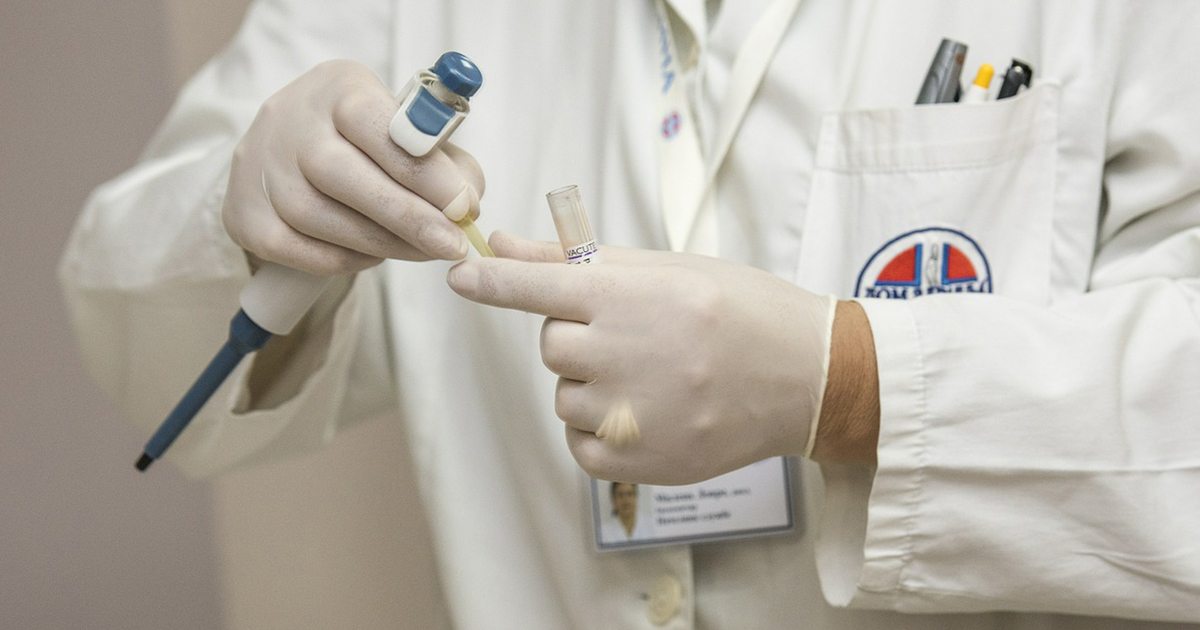Category: Research
New Drugs Rally Immune System to Fight Cancer
For many years, cancer researchers have questioned why the immune system doesn’t react to cancer cells as invaders and attack them. A deepening understanding of genetic drivers of disease reveals that the cancerous tumors take over the brake control on the immune system.
A recent article in The Wall Street Journal underscores the advances being made in new drugs that release the brake and allow the immune system to fight various forms of cancer, including cancers associated with asbestos exposure.
For Tom Stutz, a 72-year-old retired lawyer in California, taking each breath was a struggle and even doing simple tasks such as eating a meal required help as cancer advanced in his lungs and liver. In April, Stutz, who was confined to a wheelchair, began taking an experimental drug known as MK-3475 that reactivated his immune system to fight cancer. Today, Mr. Stutz is walking 3.5 miles a day, has parked his wheelchair, and reports feeling terrific, according to The Wall Street Journal article about innovative medical treatments. Doctors informed Mr. Stutz in the fall that his tumors had shrunk by 65 percent.
MK-3475, which has not yet been approved by the U.S. Food and Drug Administration, is under development by Merck & Co. It is among a class of drugs known as PD-1 inhibitors. The drugs disrupt the ability of cancer to hijack the immune system and boosts the immune response to certain cancers. In testing the drug on patients with metastatic melanoma, researchers reported in November that about 9 percent of patients who took the drug has no observable cancer after 12 weeks while half of the study participants had tumor shrinkage.
Merck is currently recruiting cancer patients to participate in clinical trials to study the safety and tolerability of the drug to treat several forms of cancer including non-small cell lung cancer, one of the cancers associated with asbestos exposure. You can find contact information about the clinical trial here.

Increased Rate of Mesothelioma Detected Near Former PA Asbestos Factory
Researchers at the University of Pennsylvania have received a grant from the National Institutes of Health to document how people were affected by asbestos exposure who lived near an asbestos factory in Ambler, Pennsylvania. Exposure to asbestos dust is linked to serious respiratory diseases including lung cancer and mesothelioma, a cancer of the lining of the lungs.
The Pennsylvania Department of Health has identified an increase in the rate of mesothelioma around Ambler, where an asbestos factory operated for decades, according to a Penn Medicine news release this month. Ambler is just north of Philadelphia.
Dr. Fran Barg, an associate professor at University of Pennsylvania School of Medicine, told the CBS News affiliate in Philadelphia that Ambler has been profoundly affected by mesothelioma. The Ambler Boiler House, near the town’s revived Butler Avenue district, operated for nearly a century as an asbestos-manufacturing plan, but was shuttered in the mid 1970s.
Today, residents the West and South Ambler communities remain at risk of environmental exposure to asbestos and are potentially at increased risk of developing mesothelioma, the Penn Medicine researchers say. Although the factory has long been closed, symptoms of asbestos disease take decades to appear. Current and former Ambler residents who had occupational or environmental exposure to asbestos in the 1960s or 1970s or more recently could develop mesothelioma as a result of that past exposure.
Asbestos fibers when inhaled may lodge deep in the chest cavity, causing inflammation that eventually leads to disease. Mesothelioma is incurable, but there are treatments for mesothelioma to help manage the disease if it is diagnosed before it has reached an advanced stage.
“We know there is an existing health risk, but that’s just one piece of the problem,” Barg said in a Penn press release. “These communities suffered great social and economic consequences when the asbestos factory closed, and today, they are still trying to recover from that loss.”
The five-year study is to document the asbestos impact on the community and help local leaders make decisions about the future of the former asbestos factory site in the community. Barg and fellow researcher Edward Emmett, a professor of Occupational and Environmental Medicine, will develop a storehouse of information online and at the Chemical Heritage Foundation about the asbestos-related health risks in the community.
According to the U.S. Environmental Protection Agency, environmental regulators have overseen the cleanup of more than a million cubic yards of asbestos waste that was dumped on a 25-acre site nearby.
Ambler residents can contact Dr. Fran Barg directly for information about the study by emailing her at [email protected].

Medical Milestone: Gene Therapy Drug Approved To Fix Genetic Code Typos
Mark your calendar: A new era in medicine has begun.
The European Union has licensed for sale the first gene-therapy drug in the Western world. Gene therapy is a type of medicine that treats disease by replacing defective genes with functioning genes. It holds great potential for treating diseases caused by defective genes, though it has remained largely experimental and confined to research laboratories to date. One day, patients with mesothelioma may benefit.
The European Commission on Friday granted approval to Glybera, a gene therapy medicine that treats a rare inherited disorder called lipoprotein lipase deficiency (LPLD), according to the BBC News.
http://www.bbc.co.uk/news/health-20179561
People with the extremely rare disease are unable to produce enough of an enzyme to digest fat properly. Fat levels in the blood may increase dramatically. A person with the enzyme deficiency may suffer life-threatening pancreatitis attacks as well as early onset of diabetes.
The drug developed by a Dutch company, UniQuire, in a single injection that contains a gene that helps the body produce the necessary enzyme.
According to The Wall Street Journal, the European action is a milestone for the field of gene therapy. In an article in the WSJ, Len Seymour, a professor of gene therapy at Oxford University who is unaffiliated with Glybera, said the approval begins to exemplify what genetically coded medicines can do.
UniQure plans to file an application with the U.S. Food and Drug Administration next year, seeking regulatory approval for the drug, the company said in a statement. No gene therapy medicines have been approved in the United States so far.
Researchers have been studying the effectiveness of gene therapy in treating various diseases in clinical trials since a landmark discovery in 1989 that an abnormality in one gene caused the disease cystic fibrosis. That led to the premise that doctors could treat a patient’s disease by identifying an abnormal gene mutation and replacing the defective gene with a corrected copy. But scientists have run into many set backs in the development of gene therapy.
While the initial applications of gene therapy are likely to involve rare diseases that may be cured by replacing a single defective gene, researchers also are exploring the potential of gene therapy for treatment of cancer including mesothelioma, a cancer caused by asbestos exposure.
The University of Pennsylvania has an ongoing gene therapy clinical trial for patients who are newly diagnosed with mesothelioma and patients whose cancer has not responded to other treatments. Patients receive a combination of chemotherapy and a new type of gene therapy called immuno-gene therapy that uses a modified common cold virus to trigger the patient’s immune system to destroy cancer cells. The doctors have been encouraged by the response of mesothelioma patients receiving the experimental treatment, Dr. Daniel Sterman an associate professor at the University of Pennsylvania said in a news release.
http://www.uphs.upenn.edu/news/News_Releases/2011/12/igt-cancer/
Approximately 2,500 to 3,000 people are diagnosed with mesothelioma each year in the United States. Most are older workers, retired workers and veterans who were exposed to asbestos fibers decades ago in a workplace or in military service.
Know more about mesothelioma and how you can deal with it.

New Cancer Fighting Drug Available to Mesothelioma Patients
A new cancer fighting drug is available to newly-diagnosed mesothelioma patients as part of a clinical trial at the University of Southern California.
Dr. Parkash Gill, an oncologist who supervises the mesothelioma laboratory at the USC Norris Comprehensive Cancer Center, announced this month that the cancer fighting drug EPH-B4 is available to qualifying patients who have not undergone any conventional treatment and to patients who have exhausted other treatment options such as chemotherapy and surgery.
Due to the role that the EphB4 protein plays in the transition of benign tumors into a malignant state, Gill has focused much of his research on developing EphB4-specific antibodies that have been shown to significantly interfere with blood vessel formation and reduce the size of tumors in animal experiments.
Gill said the drug has shown great promise as a solo treatment and in conjunction with chemotherapy drugs such as Alimta, Cisplatin and Carboplatin. It has been submitted to the U.S. Food and Drug Administration for a phase I clinical trial.
Gill and a team of researchers reported in the American Journal of Pathology that that drug inhibited the development of malignant tumors by interfering with the sprouting of new bloods vessels from existing vessels.
The Mesothelioma Research Foundation of America, which is supporting Gill’s research, provides funding to find a cure for mesothelioma.
Doctors diagnose approximately 2,500 to 3,000 new cases of mesothelioma in the United States each year. Most mesothelioma sufferers are older workers, retired workers and veterans who inhaled cancer-causing asbestos fibers in workplaces decades ago. Asbestos can trigger respiratory problems and growth of cancerous tumors 20 to 50 years after breathing or swallowing the microscopic fibers.
To contact Dr. Gill about the clinical trial, click here.

Cancer Vaccine Shows Promise For Pleural Mesothelioma Patients
A new cancer vaccine that may stimulate the immune system of patients with malignant pleural mesothelioma is entering a new round of clinical testing after promising preliminary results.
The vaccine maker, Aduro BioTech, Inc., announced this month the enrollment of the first patient in a Phase 1B clinical trial for the vaccine CRS-207. Medical researchers at the National Cancer Institute in Bethesda, Maryland and the H. Lee Moffitt Cancer Center in Tampa are participating in the trial.
Malignant pleural mesothelioma is a cancer of the lining of the chest cavity caused by exposure to asbestos. Approximately 2,500 to 3,000 people are diagnosed with mesothelioma each year in the U.S. Most are older workers, retired workers and veterans exposed to airborne asbestos fibers at a workplace decades ago. Mesothelioma takes decades to appear after exposure, but then advances rapidly.
The human immune system is a key line of defense against mesothelioma tumors if medical researchers can harness it to attack cancer cells, using immunotherapy. The vaccine was created using genetically modified strains of Listeria, a common food-borne pathogen known to produce a potent immune response. Researchers at Aduro BioTech engineered the pathogen to make it safe for use as the vehicle for therapeutic vaccines.
An earlier trial using the vaccine showed promising results in prolonging the lives of patients with advanced cancer. While patients with end-stage cancer typically live only three to five months, six of 17 patients who received the vaccine in the initial trial lived 15 months or longer, according to results recently published in the medical journal, Clinical Cancer Research.
As part of the new trial, mesothelioma patients will receive two prime vaccinations with CRS-207 followed by treatment with the standard chemotherapy drugs, pemetrexed and cisplatin.
“This trial will evaluate our vaccine treatment for the first time in frontline cancer patients, and we predict a synergistic benefit to their standard chemotherapy,” said Dr. Dirk Brockstedt, senior vice president of research and development at Aduro.
The vaccine also is being evaluated in a randomized, Phase 2 trial involving patients with metastatic pancreatic cancer.
For more information about the clinical trial, visit ClinicalTrials.gov.
Free Mesothelioma Patient & Treatment Guide
We’d like to offer you our in-depth guide, “A Patient’s Guide to Mesothelioma,” absolutely free of charge.
It contains a wealth of information and resources to help you better understand the condition, choose (and afford) appropriate treatment, and exercise your legal right to compensation.
Download Now